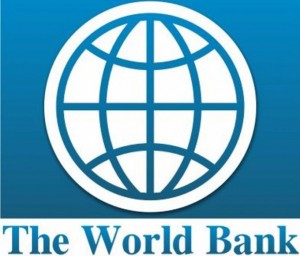World Bank says Ghana is fastest growing mobile money market in Africa
 A World Bank report released over the weekend says Ghana is the fastest growing mobile money market in Africa.
A World Bank report released over the weekend says Ghana is the fastest growing mobile money market in Africa.
According to the report, mobile phone penetration created opportunities for expansion of financial services and increased the role of non-financial institutions as much as e-money issuers, positioning Ghana as the fastest growing mobile money market in Africa.
The 45-page report tilted: “4th Ghana Economic Update”, which focuses on financial sector development and financial inclusion, further stated that this dynamic development indicated the potential of digital financial services and payments to further enhance financial inclusion in Ghana.
Speaking at the launch of the fourth Ghana Economic Update, Dr. Henry Kerali, the World Bank Country Director in Ghana, said Ghana’s economy has had a turnaround over the past two years.
He said it would be important to leverage the momentum that the fiscal responsibility law created and ensure that fiscal sustainability could be maintained across economic and political circles, stating that, more domestic resource mobilisation would be key to this effort.
Dr. Kerali recounted that this year’s theme being: “Enhancing Financial Inclusion” was timely; considering the many developments that occurred in Ghana’s financial sector over the past years and congratulated the government and the Bank of Ghana for taking courageous steps to address the various challenges faced by the financial sector.
Dr. Mawuli Gaddah, Head of Fiscal Risk Unit at the Ministry of Finance, said the fourth Ghana Economic Update highlighted recent macroeconomic developments and provided a detailed analysis of recent developments in the financial sector and offered policy recommendations.
He said the ministry would use the report as an important reference material and take the policy recommendations proposed into account in their daily policy analysis and implementation.
He said as Ghana seeks to forge economic and social partnership with development partners, they regard such engagements as an important part of their development agenda; adding that, “we wish to use this opportunity to urge the World Bank to deepen its engagement with the ministry”.
The report acknowledged that despite the challenges in building a more financially inclusive economy, there was significant growth in the number of financial access points over the past five years.
It noted that the growth was primarily related to the spread of mobile money and government facilitation of interoperability across payment instruments by establishing a mobile money switching solution.
It also showed that Ghana’s annual economic growth continued on a strong path at 6.3 per cent in 2018, although at a slower pace than the 8.1 per cent in 2017.
According to the report, this trend was led largely by a strong growth in mining, petroleum, agriculture and sustained expansion in forestry and logging.
The report projected Ghana’s economic growth to increase to 7.6 percent in 2019, driven by both the oil and non-oil sectors.
It indicated that growth in the non-oil sector was expected to accelerate as policy interventions in agriculture and industry would vitalize the productive sectors.
The report highlighted that despite the rapid growth of the financial sector in Ghana since 2010, rural access to formal financial accounts was still low in some regions of Ghana.
It noted that, women were less financially included than men in Ghana.
In support of the government’s efforts for enhancing financial inclusion in Ghana, the report therefore, made a number of recommendations. These are, digitizing government payments and utility payments, linking informal financial channels with formal ones, and promoting agent banking.
It also recommended that improved financial programmes could stimulate demand for services, as it would arm the financial consumers with information needed to identify the benefits and risks of financial products.
The report underscored the need to improve access to finance, stating that, government takes the lead in developing sound policies or legal frameworks to mandate data-sharing.
Source: GNA
